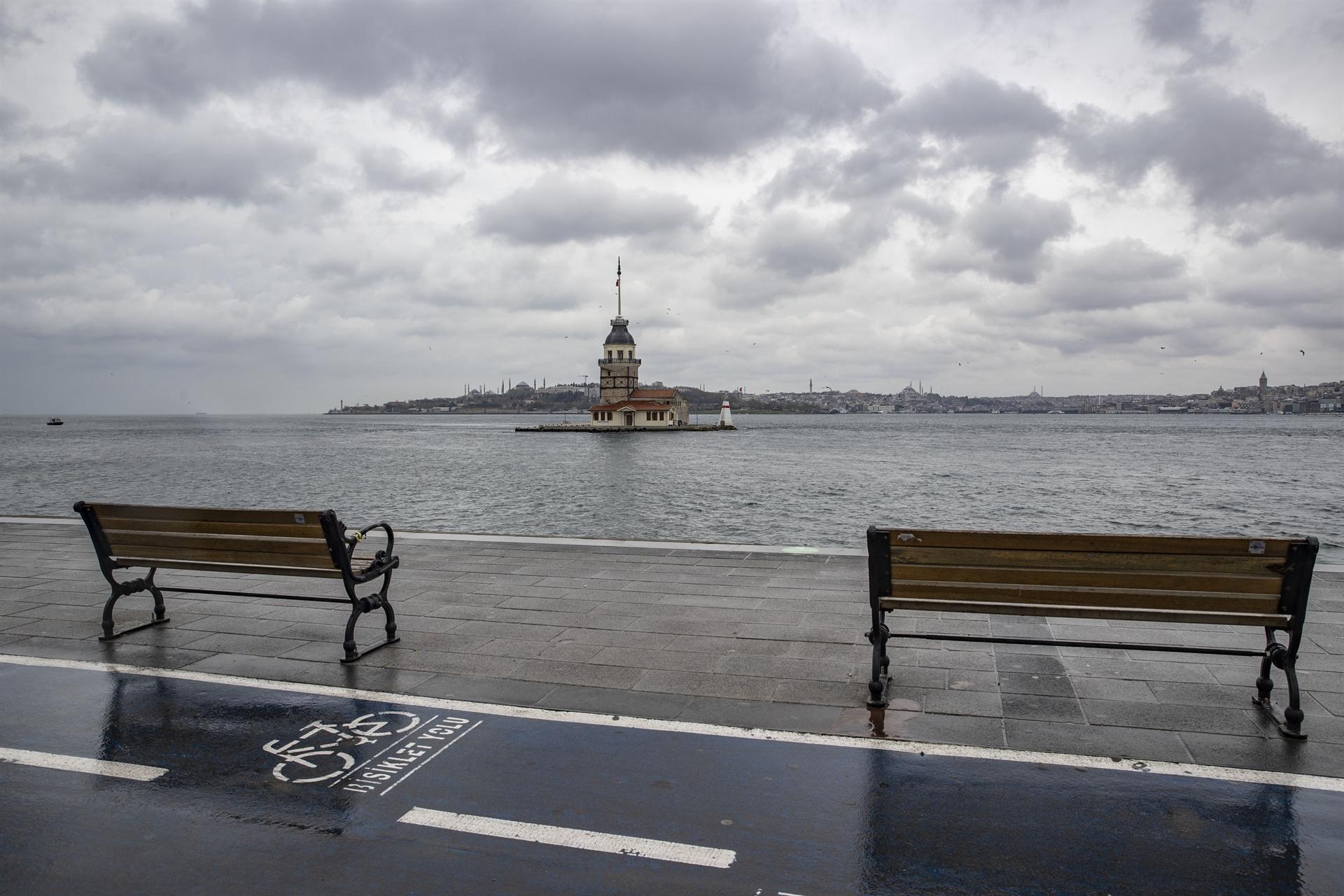
New restrictions imposed appear to have helped reduce new infections, experts have said as the cabinet is set to meet on April 26 to assess the effects of the curbs as well as vaccine supplies.
The government on April 13 introduced a raft of measures for two weeks during the Islamic holy month of Ramadan, including extended weeknight curfews and a nationwide weekend lockdown.
As part of those restrictions, the weekend lockdown this week was extended to include the April 23 national holiday.
“The number of daily cases recorded this week was lower compared with the previous week and infections may continue to decline this week,” Professor Deniz Çalışkan Odabaş said.
Due to the incubation period, the impact of the restrictions is reflected in the statistics with some 10 days delay, Odabaş told daily Milliyet.
Health Minister Fahrettin Koca announced on Twitter on April 23 that Istanbul saw a 20 percent decline in the number of cases.
The number of patients treated in the city’s hospitals also dropped, but the caseload in intensive care units is still heavy, Koca said.
According to Professor Mehmet Ceyhan, a respected expert in infectious diseases, the outbreak situation in Turkey is showing signs of improvement.
“Now, we are in a tunnel where there is light at the end of it,” Ceyhan said, adding that people must stick to the measures even stricter than before.
Ceyhan, however, is rather cautiously optimistic, warning that the situation could worsen again if the restrictions are loosened and the public starts to behave complacent.
He added that vaccinations and anti-virus measures should go hand in hand to bring the spread of COVID-19 under control. “We will overcome the outbreak if we vaccinate at least 70 percent to 75 percent of the public,” Ceyhan said.
Turkey, which rolled out inoculations against the coronavirus on Jan. 14, has administered more than 21.1 million doses, with over 13 million people having received the first dose. Some 8 million people have been given both doses.
In its inoculation drive, the country is presently using the jabs developed by Pfizer/BioNTech and the Chinese pharmaceuticals company Sinovac.
Koca said last week that Turkey would soon begin administering Russia’s Sputnik V vaccine.
Meanwhile, the cabinet, headed by President Recep Tayyip Erdoğan, will meet on April 26 to evaluate the effects of the restrictions as well as vaccine supplies and inoculation efforts.
Both Erdoğan and Koca already warned that if the current curbs fail to yield the desired results, imposing even stricter measures could be considered to arrest the spread of the virus.